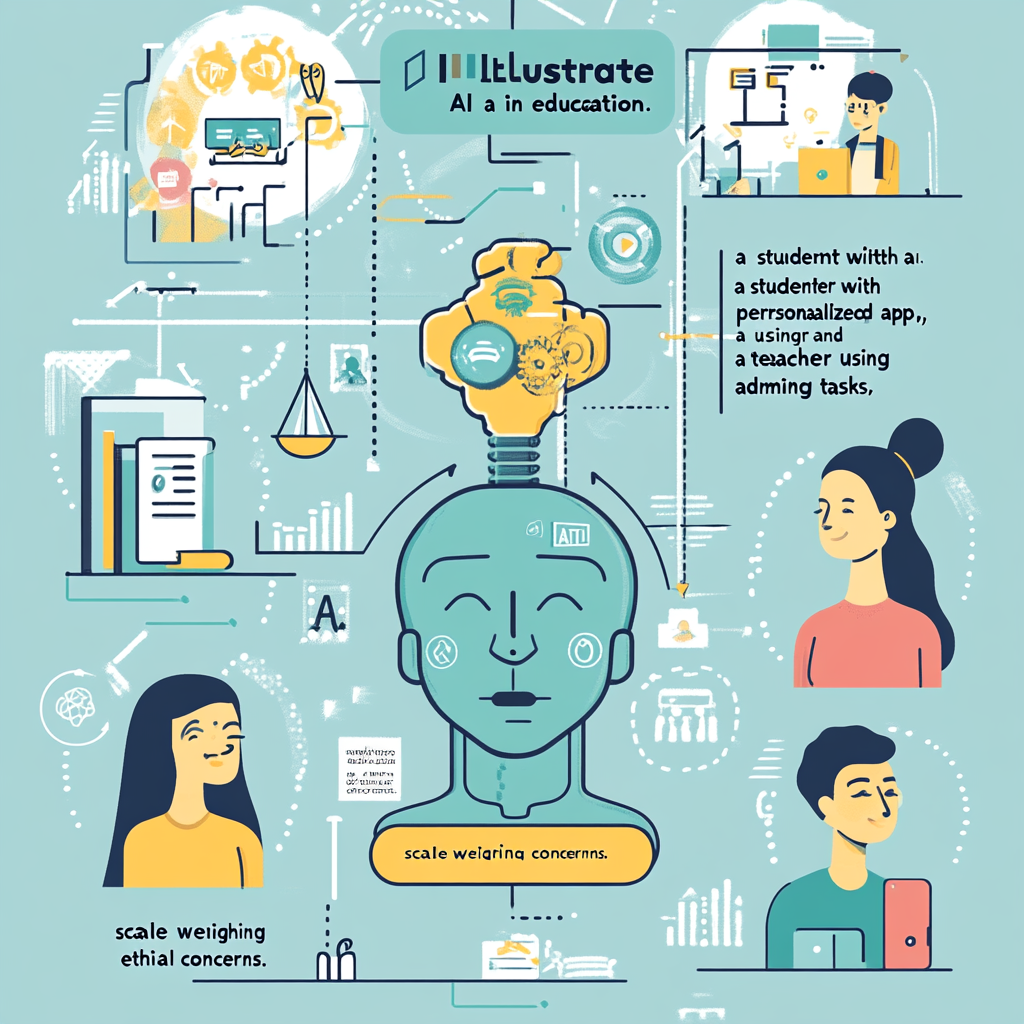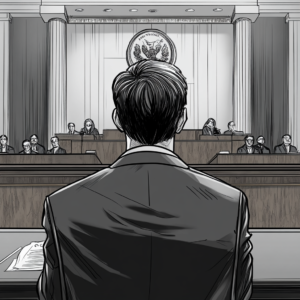
“Balancing Innovation and Ethics: The Role of AI in Education”
Weighing the Benefits of AI in Education Against Ethical Implications
As we stride boldly into the digital epoch, where technology meets endless possibilities, artificial intelligence (AI) is stirring the educational waters like a powerful whirlpool, creating ripples of excitement and tremors of unease. Sure, AI clutches the potential to personalize learning experiences, fine-tune administrative duties, and shower immediate feedback upon our eager students. But let's not kid ourselves; looming over this shiny façade are serious ethical questions weaving about privacy, bias, and the oh-so delicate fabric of teacher-student relationships. Buckle up, dear reader, as we embark on a journey into the heart of AI in education, mapping its multitude of benefits and the darker shadows it casts.
AI in education isn’t some hypothetical dream floating in the far reaches of academia; it’s the real deal, disrupting traditional learning paradigms and sending shockwaves across classrooms worldwide. For instance, in sunny Australia, innovative educators such as Trent Wilson and Jason Szkwarek are witnessing firsthand how AI tools transform educational landscapes, sharpening critical thinking and empowering vocational training by slicing complex tasks into digestible morsels (a bit like making a delightful soufflé, for those culinary enthusiasts out there).
So, what exactly are the delectable fruits of AI in this grand educational banquet?
Benefits of AI in Education
-
Personalized Learning: Imagine an education system that’s as attuned to students as a well-trained service dog. AI systems analyze oceans of data concerning students' progress, strengths, and weaknesses to forge individualized learning pathways. No one gets left behind, as each student can learn at their own rhythm. AI doesn’t just personalize projects, translations, and tasks; it acts as a virtual advisor, creating a warm and inclusive learning cocoon that wraps students comfortably.
-
Administrative Efficiency: Picture this: administrative tasks vanish like cotton candy at a carnival, leaving educators to devote their time and energy to what they love most—teaching! By automating the mundane drudgeries like scheduling, attendance, and data management, AI throws a lifeline to educators drowning in paperwork. With resources allocated seamlessly based on historical data analysis, educational institutions become not just productive but downright efficient.
-
Real-Time Feedback: Think of AI as that brutally honest friend who tells you exactly what you need to hear (but with a little more finesse). Offering real-time, unbiased feedback, AI assists educators in morphing their teaching strategies on the fly. This boost in engagement not only makes learning dynamic but also minimizes biases in assessments, resulting in fairer and more actionable feedback overall.
But before we dive deeper into this enticing AI feast, let's not forget that with great power comes great responsibility—especially in the context of such a sacred space as education.
Ethical Implications of AI in Education
Just as a perfectly brewed cup of tea can turn sour without the right balance, the benefits of AI come packaged with a host of ethical dilemmas needing our urgent attention:
-
Privacy and Data Protection: As AI systems munch on an impressive buffet of data, concerns simmer regarding student privacy. Can we guarantee that our young scholars’ data is handled securely and transparently? The integrity of the educational experience relies on safeguarding sensitive information like a prized recipe.
-
Bias and Fairness: Here’s where things get sticky. AI algorithms are only as good as the data they feast upon. If that data harbors biases, your trusty AI can end up dishing out unfair assessments or crafting learning paths that unjustly favor certain students over others. For equity to be served at this educational banquet, diverse and representative training data must become the bread and butter.
-
Impact on Teacher-Student Relationship: Here’s the kicker: the over-dependence on AI could somehow dilute that precious interaction that makes learning so vibrant and human. Machines can’t replicate the warmth of a teacher’s encouragement or the passion igniting an enlightening conversation. The challenge lies in ensuring AI complements, rather than usurps, the deeply human aspect of education.
Speaking of human connection, a recent Vatican document rang the clarion call for using AI in a way that keys into nature of humanity—"to complement human intelligence, not replace its richness" in education. Meanwhile, the European Commission is getting down to brass tacks, pushing for AI design rooted in transparency, fairness, and accessibility—because every student deserves a fair shot at learning.
As we navigate this intricate dance between humanity and technology, the allure of AI becomes a double-edged sword—flashing the promise of personalized education and seamless administration while whispering ethical cautionary tales into our ears. Addressing these challenges through transparency, integrity, and responsibility becomes a non-negotiable pact if we’re to tap into the full potential of AI in education.
In the grander scheme, the serious responsibility of ensuring equity in learning opportunities means we get to build a more inclusive, engaging, and productive educational environment for students around the globe.
Want to dive deeper into the evolution of AI in education? There's a treasure trove of insights awaiting you; simply explore the latest musings on AI's transformative journey in the educational sector. And as you ponder the intricacies of this shifting landscape, equip yourself with the latest tools, research, and ethical guidelines by tapping into trusted resources.
As AI continues to revolutionize education, staying updated with progress, trends, and ethical conversations is critical. So keep your finger on the pulse. Subscribe to our Telegram channel: @ethicadvizor, and join us in this fascinating expedition into the future of learning, where the marriage of technology and education creates ever-unfolding possibilities.

